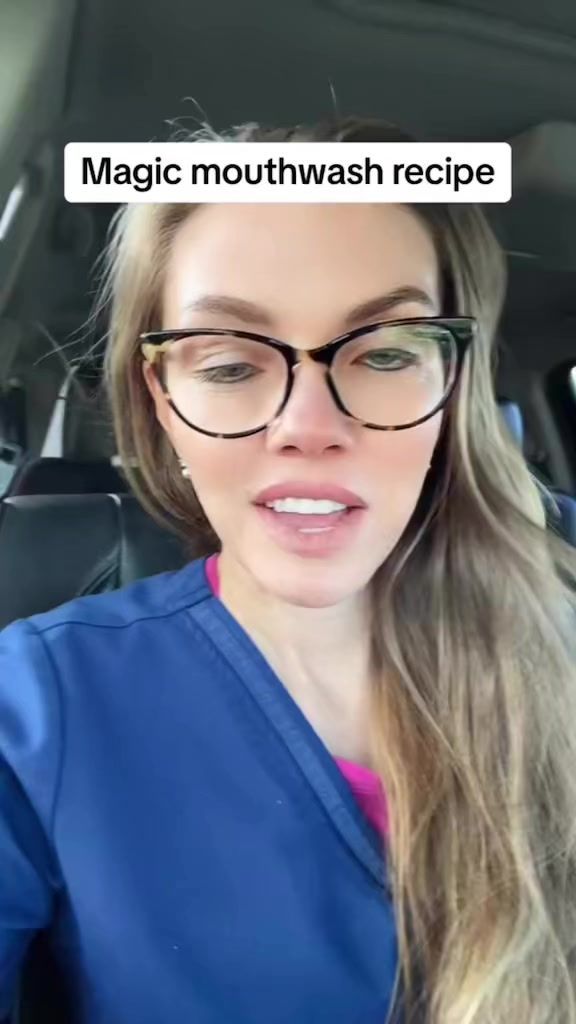Homemade Mouthwash Recipe

The quest for a healthy, fresh smile often starts with the right oral care routine. One crucial element of this routine is mouthwash, which can help kill bacteria, reduce plaque, and leave your mouth feeling clean and refreshed. While there are numerous commercial mouthwashes available, some individuals prefer a more natural approach, opting for homemade recipes that can be tailored to their specific needs and preferences. In this comprehensive guide, we’ll delve into the world of homemade mouthwash recipes, exploring their benefits, ingredients, and how to make them.
Benefits of Homemade Mouthwash
Before we dive into the recipes, it’s essential to understand the advantages of choosing a homemade mouthwash over a commercial one. Here are a few key benefits:
- Customization: With homemade mouthwashes, you have the freedom to choose ingredients that target your specific oral health concerns, whether it’s bad breath, gum sensitivity, or tooth decay.
- Cost-Effective: Many of the ingredients used in homemade mouthwashes are common household items or inexpensive to purchase, making them a budget-friendly option.
- Natural Ingredients: You can avoid harsh chemicals found in some commercial mouthwashes, opting for natural ingredients that are gentler on your mouth and overall health.
- Freshness: Homemade mouthwashes can be made in small batches, ensuring that you’re always using a fresh product.
Essential Ingredients for Homemade Mouthwash
The base of most homemade mouthwashes includes ingredients that provide antiseptic properties, flavor, and sometimes a bit of sweetness to make the experience more pleasant. Here are some essential ingredients you might consider:
- Water: This is the base of your mouthwash, and it’s crucial for diluting the other ingredients to a safe and effective concentration.
- Salt: Known for its antiseptic properties, salt can help reduce inflammation and kill bacteria.
- Baking Soda: It helps neutralize acid and can reduce plaque, making it a beneficial addition for oral health.
- Essential Oils: Certain essential oils like peppermint, tea tree, and eucalyptus are known for their antibacterial properties and refreshing flavors.
- Hydrogen Peroxide: Used in small concentrations, it can help whiten teeth and kill bacteria. However, it’s crucial to use it sparingly and under the right dilution to avoid damaging tooth enamel.
- Aloe Vera: It can help soothe gums and reduce inflammation, making it an excellent ingredient for those with sensitive mouths.
Simple Homemade Mouthwash Recipes
Now that we’ve covered the benefits and essential ingredients, let’s look at a couple of simple recipes you can try at home:
Recipe 1: Salt and Baking Soda Mouthwash
- 1 cup of water
- 1 tablespoon of salt
- 1 tablespoon of baking soda
- 10 drops of peppermint essential oil
Combine the water, salt, and baking soda in a small bowl. Stir until the salt and baking soda are fully dissolved. Add the peppermint essential oil and stir again. Transfer the mixture to a clean glass bottle and store it in the fridge for up to two weeks.
Recipe 2: Tea Tree and Aloe Vera Mouthwash
- 1 cup of water
- 1⁄2 teaspoon of salt
- 1⁄4 teaspoon of baking soda
- 10 drops of tea tree essential oil
- 2 tablespoons of aloe vera juice
Mix the water, salt, and baking soda in a bowl until the solids are dissolved. Add the tea tree essential oil and aloe vera juice, stirring well. This mixture can be stored in the fridge for up to one week due to the aloe vera content.
Using Your Homemade Mouthwash
Using your homemade mouthwash is similar to using any commercial mouthwash. Here are the basic steps:
- Swish: Take about 2-3 tablespoons of your homemade mouthwash and swish it around your mouth for 30 seconds to 1 minute, making sure to reach all areas.
- Gargle: If you feel comfortable doing so, gargle the mouthwash at the back of your throat for a few seconds.
- Spit: Spit out the mouthwash. Do not swallow it, as it may contain ingredients that are not meant to be ingested in large quantities.
- Rinse: After spitting out the mouthwash, rinse your mouth with water to remove any remaining residue.
Conclusion
Homemade mouthwashes can be a viable alternative to commercial products, offering customization, cost-effectiveness, and the use of natural ingredients. By understanding the benefits, choosing the right ingredients, and following simple recipes, you can create your own effective mouthwash at home. Remember, while these recipes can be very beneficial, if you have specific oral health concerns or questions, it’s always best to consult with a dental professional for personalized advice.
Can I use my homemade mouthwash daily?
+Yes, you can use your homemade mouthwash daily as part of your oral hygiene routine. However, it’s crucial to ensure that your recipe is gentle enough for daily use and doesn’t contain high concentrations of ingredients like hydrogen peroxide, which can be harmful with frequent use.
How long can I store my homemade mouthwash?
+The storage time for homemade mouthwash can vary depending on the ingredients used. Generally, mouthwashes with water as the base can be stored in the fridge for up to two weeks. If your recipe includes ingredients like aloe vera, which can spoil more quickly, consider reducing the storage time to one week. Always check your mouthwash for any signs of spoilage before use.
Can children use homemade mouthwash?
+It’s generally not recommended for children to use homemade mouthwash without consulting a pediatric dentist first. Children might accidentally swallow the mouthwash, and some ingredients, even in small amounts, can be harmful. Always prioritize professional advice when it comes to the oral health of children.

